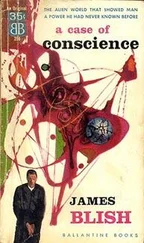James Blish - Cities in Flight
Здесь есть возможность читать онлайн «James Blish - Cities in Flight» весь текст электронной книги совершенно бесплатно (целиком полную версию без сокращений). В некоторых случаях можно слушать аудио, скачать через торрент в формате fb2 и присутствует краткое содержание. Жанр: Фантастика и фэнтези, на английском языке. Описание произведения, (предисловие) а так же отзывы посетителей доступны на портале библиотеки ЛибКат.
- Название:Cities in Flight
- Автор:
- Жанр:
- Год:неизвестен
- ISBN:нет данных
- Рейтинг книги:4 / 5. Голосов: 1
-
Избранное:Добавить в избранное
- Отзывы:
-
Ваша оценка:
- 80
- 1
- 2
- 3
- 4
- 5
Cities in Flight: краткое содержание, описание и аннотация
Предлагаем к чтению аннотацию, описание, краткое содержание или предисловие (зависит от того, что написал сам автор книги «Cities in Flight»). Если вы не нашли необходимую информацию о книге — напишите в комментариях, мы постараемся отыскать её.
Cities in Flight — читать онлайн бесплатно полную книгу (весь текст) целиком
Ниже представлен текст книги, разбитый по страницам. Система сохранения места последней прочитанной страницы, позволяет с удобством читать онлайн бесплатно книгу «Cities in Flight», без необходимости каждый раз заново искать на чём Вы остановились. Поставьте закладку, и сможете в любой момент перейти на страницу, на которой закончили чтение.
Интервал:
Закладка:
Corsi stirred a little beside him, but Senator Wagoner’s own weight on the sofa seemed to have been increasing ever since he had first sat down. He felt drained, lethargic, as old and heavy as a stone despite his forty-eight years; it had been a bad day in a long succession of bad days. Good days in Washington were the ones you slept through.
Next to him Corsi, for all that he was twenty years older, formerly Director of the Bureau of Standards, formerly Director of the World Health Organization, and presently head man of the American Association for the Advancement of Science (usually referred to in Washington as “the left-wing Triple A-S”), felt as light and restless and quick as a chameleon.
“I suppose you know what a chance you’re taking, coming to see me,” Corsi said in his dry, whispery voice. “I wouldn’t be in Washington at all if I didn’t think the interests of the AAAS required it. Not after the drubbing I’ve taken at MacHinery’s hands. Even outside the government, it’s like living in an aquarium—in a tank labelled ‘Pirhana.’ But you know about all that.”
“I know,” the senator agreed. The shadows jumped forward and retreated. “I was followed here myself. MacHinery’s gumshoes have been trying to get something on me for a long time. But I had to talk to you, Seppi. I’ve done my best to understand everything I’ve found in the committee’s files since I was made chairman—but a nonscientist has inherent limitations. And I didn’t want to ask revealing questions of any of the boys on my staff. That would be a sure way to a leak—probably straight to MacHinery.”
“That’s the definition of a government expert these days,” Corsi said, even more dryly. “A man of whom you don’t dare ask an important question.”
“Or who’ll give you the only the answer he thinks you want to hear,” Wagoner said heavily. “I’ve hit that too. Working for the government isn’t a pink tea for a senator, either. Don’t think I haven’t wanted to be back in Alaska more than once; I’ve got a cabin on Kodiak where I can enjoy an open fire, without wondering if the shadows it throws carry notebooks. But that’s enough self-pity. I ran for the office, and I mean to be good at it, as good as I can be, anyhow.”
“Which is good enough,” Corsi said unexpectedly, taking the brandy snifter out of Wagoner’s lax hand and replenishing the little amber lake at the bottom of it. The vapors came welling up over his cupped hand, heavy and rich. “Bliss, when I first heard that the Joint Congressional Committee on Space Flight was going to fall into the hands of a freshman senator, one who’d been nothing but a press agent before his election—”
“Please,” Wagoner said, wincing with mock tenderness. “A public relations counsel.”
“As you like. Still and all, I turned the air blue. I knew it wouldn’t have happened if any senator with seniority had wanted the committee, and the fact that none of them did seemed to me to be the worst indictment of the present Congress anyone could ask for. Every word I said was taken down, of course, and will be used against you, sooner or later. It’s already been used against me, and thank God that’s over. But I was wrong about you. You’ve done a whale of a good job; you’ve learned like magic. So if you want to cut your political throat by asking me for advice, then by God I’ll give it to you.”
Corsi thrust the snifter back into Wagoner’s hand with something more than mock fury. “That goes for you, and for nobody else,” he added. “I wouldn’t tell anybody else in government the best way to pound sand—not unless the AAAS asked me to.”
“I know you wouldn’t, Seppi. That’s part of our trouble. Thanks, anyhow.” He swirled the brandy reflectively. “All right, then, tell me this: what’s the matter with space flight?”
“The army,” Corsi said promptly.
“Yes, but that’s not all. Not by a long shot. Sure, the Army Space Service is graft-ridden, shot through with jealousy and gone rigid in the brains. But it was far worse back in the days when a half-dozen branches of government were working on space flight at the same time—the weather bureau, the navy, your bureau, the air force and so on. I’ve seen some documents dating back that far. The Earth Satellite Program was announced in 1944 by Stuart Symington; we didn’t actually get a manned vehicle up there until 1962, after NASA was given full jurisdiction. They couldn’t even get the damned thing off the drawing boards; every rear admiral insisted that the plans include a parking place for his pet launch. At least now we have space flight.
“But there’s something far more radically wrong now. If space flight were still a live proposition, by now some of it would have been taken away from the army again. There’d be some merchant shipping maybe; or even small passenger lines for a luxury trade, for the kind of people who’ll go in uncomfortable ways to unliveable places just because it’s horribly expensive.” He chuckled heavily. “Like fox-hunting in England a hundred years ago; wasn’t it Oscar Wilde who called it ‘the pursuit of the inedible by the unspeakable’?”
“Isn’t it still a little early for that?” Corsi said.
“In 2013? I don’t think so. But if I’m rushing us on that one point, I can mention others. Why have there been no major exploratory expeditions for the past fifteen years? I should have thought that as soon as the tenth planet, Proserpine, was discovered some university or foundation would have wanted to go there. It has a big fat moon that would make a fine base—no weather exists at those temperatures—there’s no sun in the sky out there to louse up photographic plates—it’s only another zero-magnitude star—and so on. That kind of thing used to be meat and drink to private explorers. Given a millionaire with a thirst for science, like old Hale, and a sturdy organizer with a little grandstand in him—a Byrd-type—and we should have had a Proserpine Two station long ago. Yet space has been dead since Titan Station was set up in 1981. Why?”
He watched the flames for a moment.
“Then,” he said, “there’s the whole question of invention in the field. It’s stopped, Seppi. Stopped cold.”
Corsi said: “I seem to remember a paper from the boys on Titan not so long ago—”
“On xenobacteriology. Sure. That’s not space flight, Seppi; space flight only made it possible; their results don’t update space flight itself, don’t improve it, make it more attractive. Those guys aren’t even interested in it. Nobody is any more. That’s why it’s stopped changing.
“For instance: we’re still using ion-rockets, driven by an atomic pile. It works, and there are a thousand minor variations on the principle; but the principle itself was described by Coupling in 1954! Think of it, Seppi—not one single new, basic engine design in fifty years! And what about hull design? That’s still based on von Braun’s work—older even than Coupling’s. Is it really possible that there’s nothing better than those frameworks of hitched onions? Or those powered gliders that act as ferries for them? Yet I can’t find anything in the committee’s files that looks any better.”
“Are you sure you’d know a minor change from a major one?”
“You be the judge,” Wagoner said grimly. “The hottest thing in current spaceship design is a new elliptically wound spring for acceleration couches. It drags like a leaf-spring with gravity, and pushes like a coil-spring against it. The design wastes energy in one direction, stores it in the other. At last reports, couches made with it feel like sacks stuffed with green tomatoes, but we think we’ll have the bugs out of it soon. Tomato bugs, I suppose. Top Secret.”
Читать дальшеИнтервал:
Закладка:
Похожие книги на «Cities in Flight»
Представляем Вашему вниманию похожие книги на «Cities in Flight» списком для выбора. Мы отобрали схожую по названию и смыслу литературу в надежде предоставить читателям больше вариантов отыскать новые, интересные, ещё непрочитанные произведения.
Обсуждение, отзывы о книге «Cities in Flight» и просто собственные мнения читателей. Оставьте ваши комментарии, напишите, что Вы думаете о произведении, его смысле или главных героях. Укажите что конкретно понравилось, а что нет, и почему Вы так считаете.












